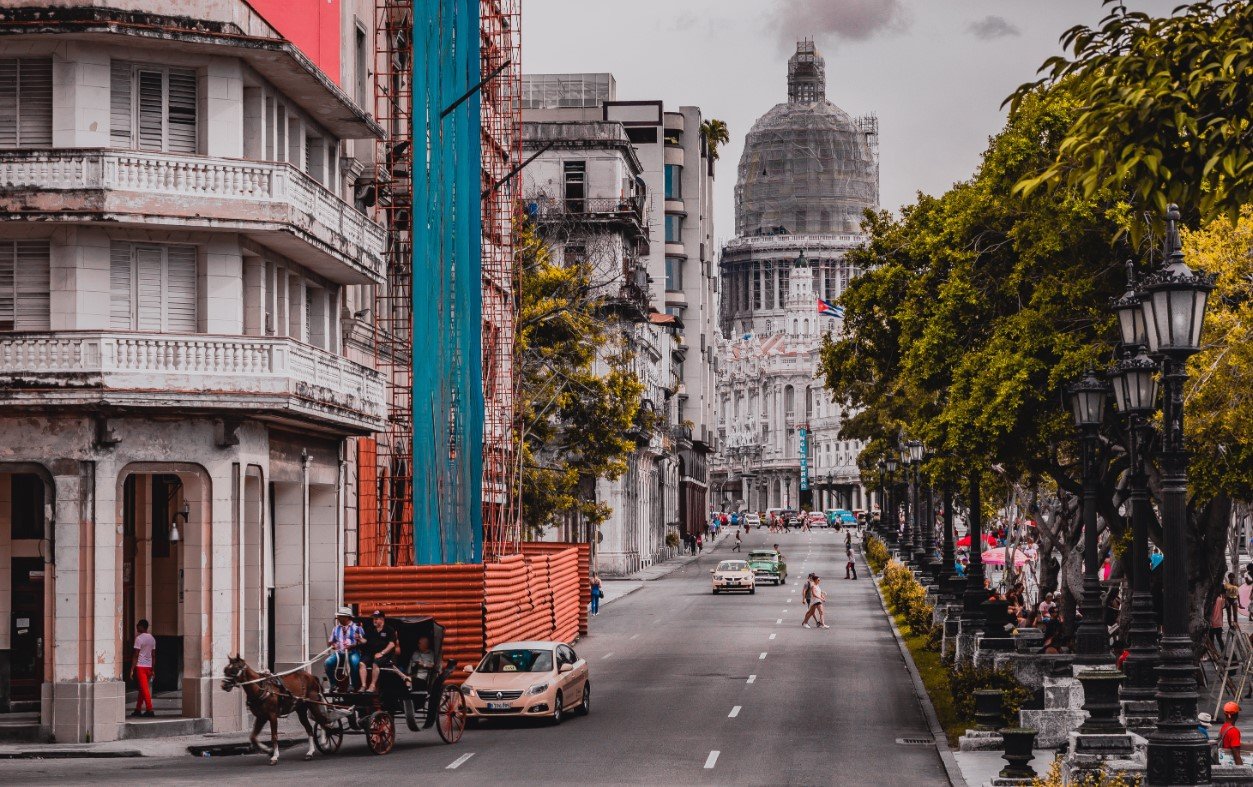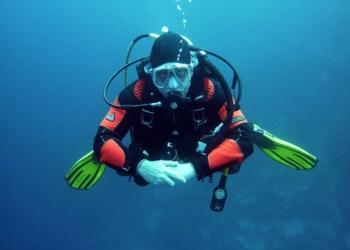Curious about traveling to Cuba as a US citizen? Let’s delve into the ins and outs of this intriguing travel destination. Despite historical restrictions, recent changes have opened up opportunities for Americans to visit Cuba under specific categories. Understanding these regulations is crucial before planning your Cuban adventure. From cultural experiences to vibrant landscapes, Cuba offers a unique blend of history and beauty that beckons travelers from around the globe. So, can US citizens travel to Cuba? Stay tuned as we uncover the latest updates and essential tips for navigating this exciting travel possibility.

Understanding US-Cuba Relations
Historical Background
The United States and Cuba have a complex history marked by political tensions. Decades of strained relations began during the Cold War era when Cuba aligned itself with the Soviet Union, leading to conflicts like the Cuban Missile Crisis in 1962. The U.S. imposed a trade embargo on Cuba in 1960, further escalating hostilities between the two nations.
Despite ongoing issues, there have been moments of attempted reconciliation. In 2014, former President Barack Obama announced efforts to normalize relations with Cuba, leading to eased travel restrictions for American citizens. However, these changes were reversed under the Trump administration in 2017.
Pros:
Potential for improved diplomatic ties
Opportunities for cultural exchange
Cons:
Uncertainty regarding long-term stability
Political disagreements hindering progress
Impact on Travel Restrictions
Political changes directly influence travel regulations between the U.S. and Cuba. When diplomatic relations are strained, travel restrictions often tighten as seen during certain periods over recent decades due to shifts in policy from different administrations.
The easing of restrictions can enable American citizens to visit Cuba more freely for purposes such as tourism or family visits. For instance, under Obama’s administration relaxation of rules allowed Americans to engage in people-to-people educational trips and support private businesses on the island nation.
Current US Travel Restrictions to Cuba
Overview of Restrictions
US citizens traveling to Cuba face travel restrictions imposed by the US government. These restrictions are in place to limit tourist travel from the United States to Cuba. The regulations aim to restrict financial transactions related to tourism and prevent American dollars from supporting the Cuban government.
Travelers must adhere strictly to these limitations, ensuring they fall within authorized categories for visiting Cuba. Failure to comply with these rules can result in penalties or legal consequences upon return.
To maintain compliance with US regulations, travelers need a general license or specific authorization from the Office of Foreign Assets Control (OFAC) before embarking on their trip. This process involves providing detailed information about the purpose and itinerary of their visit.
Specific Limitations
Tourist travel is not permitted under current US-Cuba relations. This means that individuals cannot simply visit Cuba for leisure purposes like sightseeing or enjoying a beach vacation. Violating this restriction can lead to severe repercussions, including fines and potential legal action upon reentry into the United States.
However, there are exceptions for certain categories of authorized travel, such as family visits, official business with appropriate approvals, journalistic activities, professional research and meetings, educational activities under accredited programs, religious activities organized by recognized institutions, public performances or exhibitions legally supported by U.S.-based organizations.
Categories of Authorized Travel to Cuba
Explanation of Travel Categories
Authorized travel categories to Cuba are specific reasons that allow US citizens to visit the country legally. The 12 categories include family visits, professional research, educational activities, religious purposes, and more. Each category has distinct requirements and limitations.
Understanding these categories is crucial for complying with US regulations when traveling to Cuba. For instance, if a traveler’s purpose aligns with the “Support for the Cuban People” category, they must engage in activities that support the Cuban people’s independence from Cuban authorities.
Importance of Correct Category Selection
Selecting the appropriate category is essential for ensuring legal travel to Cuba. Failure to comply with the designated category can result in penalties or being denied entry into both countries. It’s vital to accurately match one’s travel purpose with an authorized category.
Choosing the right category not only ensures compliance but also enhances the overall travel experience by allowing individuals to engage in activities aligned with their interests or goals while visiting Cuba.
Required Documents for Traveling to Cuba
Passport Requirements
US citizens traveling to Cuba must have a valid passport. It’s crucial to ensure that your passport is valid for at least six months beyond your travel dates. This requirement is essential and ensures you can enter and exit the country without any issues.
Having a valid passport also allows you to comply with Cuban regulations, making your trip smooth and hassle-free. Remember, your passport is like a key that unlocks the door to many countries, including Cuba.
Additional Documentation
Apart from a valid passport, US citizens traveling to Cuba may need additional documentation based on their authorized travel category. For instance, if you are traveling under the “Support for the Cuban People” category, you might need an itinerary detailing your activities in Cuba.
It’s essential to research and understand what specific documents are required based on your travel purpose. By being prepared with all necessary paperwork beforehand, you can avoid any last-minute stress or complications during your journey.
Importance of Keeping Documents Handy
During your trip to Cuba as a US citizen, it’s vital always to keep all required documents handy. Whether it’s your passport, visa (if applicable), travel insurance details, or any other paperwork – having them easily accessible can save time and prevent potential issues at immigration checkpoints.
Flying to Cuba: Airline Options and Routes
Direct Flights
Several airlines offer direct flights from the US to Cuba, providing convenient travel options for passengers. Airlines like American Airlines, JetBlue Airways, and Southwest Airlines have regular flights connecting major cities in the US to various airports in Cuba.
When booking an airline ticket to Cuba, travelers can choose from a range of departure cities such as Miami, Fort Lauderdale, New York City, and Los Angeles. These cities serve as popular hubs with multiple flight routes available for those planning a trip to Cuba.
Considerations
When deciding on an airline and flight route for traveling to Cuba, it’s essential to consider factors such as pricing, flight schedules, baggage allowances, and overall travel experience. Some airlines may offer more affordable options, while others provide additional amenities or services that cater to specific preferences.
Travelers should also check each airline’s official webpage for detailed information on their policies regarding baggage fees, check-in procedures, onboard services, and any specific requirements related to flying into Cuba. By reviewing these details beforehand, passengers can make informed decisions when selecting the best airline for their journey.
Navigating Cuban Customs and Entry Requirements
Visa Requirements
US citizens traveling to Cuba must obtain a tourist card or visa. This document is often provided by airlines before landing in Cuba, but it can also be acquired at the airport upon arrival. The visa allows visitors to stay in Cuba for up to 30 days and can be extended once inside the country if needed.
It’s essential to ensure that your passport is valid for at least six months beyond your travel dates. Travelers should hold health insurance coverage valid within Cuba, which may sometimes be included in airline ticket prices.
Customs Regulations
When entering Cuba, travelers need to adhere to specific customs regulations. Prohibited items include drugs, pornography, explosives, and certain types of food products like fruits and vegetables. There are also limits on the amount of alcohol and tobacco you can bring into the country without being subject to additional taxes.
To avoid any issues with Cuban customs officials, make sure you declare all items you are bringing into the country accurately. It’s advisable not to carry excessive amounts of cash or valuables with you when passing through customs.
Smooth Entry Process Tips
To facilitate a smooth entry process at Cuban airports:
Have all necessary documents ready for inspection.
Be prepared for potential questioning regarding your visit purpose.
Familiarize yourself with basic Spanish phrases as most airport staff speak limited English.
Follow instructions from officials promptly and respectfully.
Money Matters: Currency and Transactions in Cuba
Cuban Currency
Cuba primarily uses the Cuban Convertible Peso (CUC) for transactions. It’s essential to familiarize yourself with this currency before traveling to Cuba. The CUC is on par with the US dollar, making it relatively easy to understand its value.
When exchanging money, be aware of potential scams or unfavorable exchange rates. Opt for official exchange offices or banks instead of street vendors to ensure fair transactions. Keep in mind that US dollars are subject to an additional 10% fee when exchanged into CUC.
Credit Card Usage
Credit card usage in Cuba is limited compared to other countries due to financial restrictions imposed by the US government. While major credit cards like Visa and Mastercard are accepted at some establishments, it’s advisable to carry cash for most transactions.
In tourist areas or upscale hotels and restaurants, credit cards may be more widely accepted. However, smaller shops and local eateries often operate on a cash-only basis. Always have enough cash on hand for daily expenses such as meals, transportation, and souvenirs.
Currency Exchange Tips
When exchanging currency in Cuba, it’s crucial to calculate your expenses accurately beforehand. Avoid over-exchanging CUC as converting them back into your home currency can result in losses due to unfavorable rates or fees. To manage your finances effectively while in Cuba:
Keep a mix of cash (in CUC) and a limited amount of USD for emergencies.
Be cautious when using credit cards due to potential connectivity issues.
Monitor your spending closely since access to ATMs may be limited outside major cities.
Staying Legal: Adhering to US Regulations While in Cuba
Importance of Compliance
Travelers from the United States must adhere to specific regulations when visiting Cuba. Failure to comply with these rules can lead to severe penalties, including hefty fines. As a US citizen, it is crucial to understand and follow these regulations throughout your stay in Cuba.
It is essential for travelers to be aware of prohibited activities under the travel restrictions imposed by US authorities. Engaging in activities such as spending money at certain businesses or participating in unauthorized transactions can result in serious consequences, including legal repercussions upon returning to the United States. Therefore, staying informed about current policies and any updates regarding travel restrictions is vital for a smooth and lawful trip.
Staying Informed
To ensure compliance with US regulations while traveling to Cuba, there are several suggestions that individuals should consider. First, maintaining awareness of any changes or updates made by relevant authorities is key. This can involve regularly checking official government websites or subscribing to alerts from reputable sources specializing in Cuban travel regulations.
Moreover, seeking guidance from experienced travelers who have previously visited Cuba can provide valuable insights into navigating the legal aspects of the trip effectively. By learning from others’ experiences and staying informed about potential policy modifications, travelers can mitigate risks associated with non-compliance during their stay.
Cultural Insights: Preparing for Your Visit to Cuba
Cuban Society
Cuban society values family, respect, and hospitality. It’s common to greet others with a kiss on the cheek or a handshake. Family plays a central role in daily life, so showing interest in your hosts’ families is appreciated.
To show respect in Cuba, it’s essential to dress modestly and avoid flashy clothing. Cubans appreciate polite behavior, so saying “por favor” (please) and “gracias” (thank you) goes a long way. Tipping is customary in restaurants and for other services.
Basic Spanish Phrases
Learning some basic Spanish phrases can greatly enhance your experience in Cuba. Phrases like “¿Cómo está?” (How are you?), “Por favor” (Please), and “Gracias” (Thank you) can help you communicate effectively with locals.
Immersing yourself in the local culture by participating in activities like salsa dancing lessons or cooking classes can provide insight into Cuban traditions. Engaging with locals at markets or cafes allows you to practice your Spanish while learning about their way of life.
Engaging with Locals
Interacting with Cubans is an excellent way to learn more about their culture firsthand. Visiting local art galleries or attending community events exposes you to authentic Cuban artistry and creativity. By engaging with locals during these activities, you gain valuable insights into their perspectives and experiences.
Final Remarks
So, there you have it – a comprehensive guide to navigating the ins and outs of traveling to Cuba as a US citizen. From understanding the complex US-Cuba relations to ensuring you have all the necessary documents in order, you’re now equipped to embark on your Cuban adventure seamlessly. Remember, staying informed about the latest travel restrictions and guidelines is key to a smooth trip.
Now it’s your turn to pack your bags, immerse yourself in the vibrant Cuban culture, and create unforgettable memories. Don’t forget to savor every moment, from the colorful streets of Havana to the pristine beaches of Varadero. Your Cuban escapade awaits – go forth and explore!
Frequently Asked Questions
Can US citizens travel to Cuba for tourism?
US citizens are prohibited from traveling to Cuba for tourism under current regulations. However, certain categories of authorized travel allow Americans to visit the country, such as family visits, journalistic activities, professional research, and more.
What documents are required for traveling to Cuba as a US citizen?
As a US citizen traveling to Cuba, you will need a valid passport, a Cuban Tourist Card or Visa (depending on the purpose of your trip), health insurance coverage while in Cuba, and any specific documentation required based on your approved category of travel.
Which airlines offer flights from the US to Cuba?
Several airlines operate direct flights between the United States and Cuba. Some popular options include American Airlines, JetBlue Airways, Delta Air Lines, Southwest Airlines, and United Airlines. It’s advisable to check with individual airlines for schedules and availability.
How can US travelers navigate Cuban customs and entry requirements smoothly?
To navigate Cuban customs seamlessly as a US traveler:
Declare all items you bring into the country
Have necessary documents ready
Familiarize yourself with local laws
Be respectful towards officials Adhering to regulations ensures a hassle-free entry process.
Are there any restrictions on cash currency transactions when visiting Cuba as a US citizen?
Yes. When visiting Cuba as a US citizen under one of the authorized categories of travel, you should be aware that financial transactions must comply with specific guidelines. It’s recommended to exchange currency at official exchange points or use credit cards issued by non-US banks.


















